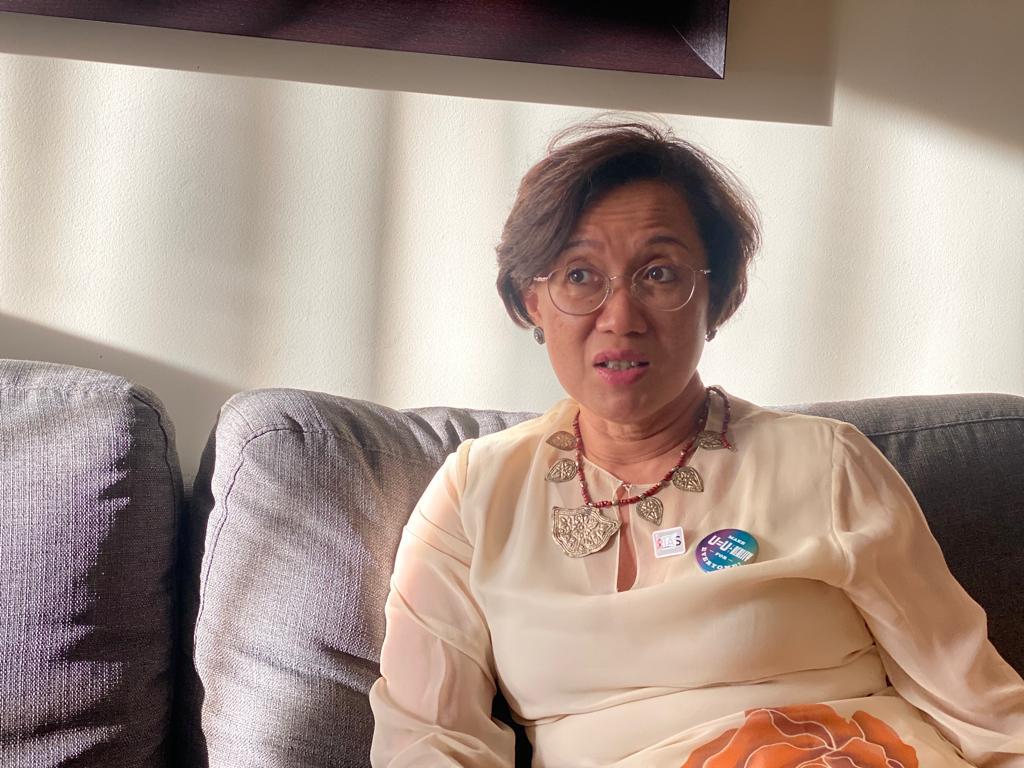MONTREAL, August 24 – Infectious disease physician Prof Dr Adeeba Kamarulzaman is optimistic of eliminating HIV/AIDS in Malaysia by 2030, perceiving the epidemic as a “low-hanging fruit” that should be included in the Health Ministry’s Health White Paper.
With an estimated 92,063 people living with HIV (PLHIV) in Malaysia, as of December 2020, a figure considered “small” compared to countries like Botswana with about 370,000 PLHIV, the former International AIDS Society president said priority should be given to making online HIV tests available nationwide and expanding access to immediate treatment and pre-exposure prophylaxis (PrEP), a medicine that can prevent the risk of getting HIV by 99 per cent.
“There are some low-hanging fruits for that White Paper. HIV is one of them,” Dr Adeeba from Universiti Malaya told CodeBlue in an interview in Montreal, Canada, last August 2 after the 24th International AIDS Conference.
“Our numbers are small, we know what can be done, what to do, the price of drugs is lower – RM3,500 per year, okay, even if you multiply that by three, RM10,000 per year – we’ve shown we can do it with Covid, we can do it with [HIV].
“The point is if you don’t do it, it is going to cost you even more by putting these people on treatment for life, and they are going to be living [longer] because a lot of people who are infected are young, right?
“If they are infected at 18, they could possibly live to 80, and you’re going to put them on treatment forever. The incentive to stop the epidemic, even from a financial point of view, is huge, and it can be done,” Dr Adeeba said. “It’s not like we have 20 million people with HIV.”
HIV in Malaysia is considered a concentrated epidemic, with a prevalence of above 5 per cent among key populations, such as people who inject drugs (PWID), female sex workers, men who have sex with men (MSM), and transgender people.
The main mode of HIV transmission in Malaysia has also shifted in the past decade from PWID or sharing of needles to MSM or sexual contact, further underlining the need to make PrEP more accessible and address stigma and discrimination in health care settings.
“Yes, it is possible (to eliminate HIV by 2030). We know roughly where the risk groups are, and to be honest, we’ve got reasonably good NGOs. But you need to mobilise them, look for them, invest in them, and train them,” Dr Adeeba said, citing NGOs like PT Foundation that mainly operates in the Klang Valley.
According to the Ministry of Health’s (MOH) population size estimates in 2018, there is an estimated 220,000 MSM in Malaysia which represents 2.2 per cent the total adult male (aged 15-64) across the country.
The MSM population size is nearly triple that of PWID at 75,000. The population size for female sex workers and transgender sex workers stood at an estimated 22,000 and 15,000, respectively, in 2018, two years before the Covid-19 pandemic.
By age, the MOH’s Global AIDS Monitoring 2021 Progress Report showed that 44 per cent of HIV cases in Malaysia involved people aged between 20 and 29, while people aged 30 to 39 accounted for 32 per cent of total cases in 2020.
By the end of 2020, about 87 per cent of the 92,063 estimated PLHIV in Malaysia were aware of their status, 58 per cent of reported PLHIV received antiretroviral therapy (ART), and 85 per cent of those on ART became virally suppressed.
This means that Malaysia still fell short of meeting the updated global HIV goals of 95-95-95, with a scorecard of 87-58-85.
The global AIDS target sets out to achieve 95 per cent of those living with HIV to know their status, 95 per cent of those who know their status to be on treatment and 95 per cent of those on treatment to be virally suppressed – meaning the amount of HIV in their body is kept very low by antiretroviral drugs so that they are not infectious to others – or 95-95-95.
“In terms of online self-testing, that needs to go nationwide, supported, and then linked to key providers who are sympathetic for treatment and PrEP,” Dr Adeeba said. “I think if I had [say] RM20 million, that’s what I would do.”
Health Minister Khairy Jamaluddin said recently that he would table the Health White Paper in Parliament by year end that would contain proposed health care reforms spanning 15 years.








